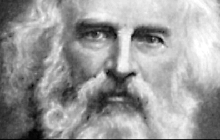So is moral education important? If so, as each of these individuals would argue, then why? Perhaps one of the clearest thinkers on this subject of moral education was the author C.S. Lewis. In his work The Abolition of Man, he builds the case for moral education by discussing at length the modern tendency to move away from it. To do this he changes the names of two authors of a textbook to Gaius and Titius and the name of their work to simply “The Green Book.” In the following extended quote from The Abolition of Man, Lewis shows what happens when you try to withdraw all moral content from education and instead just teach bare facts.
“Hence the educational problem is wholly different according as you stand within or without the Tao. For those within, the task is to train in the pupil those responses which are in themselves appropriate, whether anyone is making them or not, and in making which the very nature of man consists. Those without, if they are logical, must regard all sentiments as equally non-rational, as mere mists between us and the real objects. As a result, they must either decide to remove all sentiments, as far as possible, from the pupil’s mind; or else to encourage some sentiments for reasons that have nothing to do with their intrinsic ‘justness’ or ‘ordinacy’. The latter course involves them in the questionable process of creating in others by ‘suggestion’ or incantation a mirage which their own reason has successfully dissipated.
“Perhaps this will become clearer if we take a concrete instance. When a Roman father told his son that it was a sweet and seemly thing to die for his country, he believed what he said. He was communicating to the son an emotion which he himself shared and which he believed to be in accord with the value which his judgment discerned in noble death. He was giving the boy the best he had, giving of his spirit to humanize him as he had given of his body to beget him. But Gaius and Titius cannot believe that in calling such a death sweet and seemly they would be saying ‘something important about something’. Their own method of debunking would cry out against them if they attempted to do so. For death is not something to eat and therefore cannot be dulce in the literal sense, and it is unlikely that the real sensations preceding it will be dulce even by analogy. And as for decorum—that is only a word describing how some other people will feel about your death when they happen to think of it, which won’t be often, and will certainly do you no good. There are only two courses open to Gaius and Titius. Either they must go the whole way and debunk this sentiment like any other, or must set themselves to work to produce, from outside, a sentiment which they believe to be of no value to the pupil and which may cost him his life, because it is useful to us (the survivors) that our young men should feel it. If they embark on this course the difference between the old and the new education will be an important one. Where the old initiated, the new merely ‘conditions’. The old dealt with its pupils as grown birds deal with young birds when they teach them to fly; the new deals with them more as the poultry-keeper deals with young birds— making them thus or thus for purposes of which the birds know nothing. In a word, the old was a kind of propagation—men transmitting manhood to men; the new is merely propaganda.
“It is to their credit that Gaius and Titius embrace the first alternative. Propaganda is their abomination: not because their own philosophy gives a ground for condemning it (or anything else) but because they are better than their principles. They probably have some vague notion (I will examine it in my next lecture) that velour and good faith and justice could be sufficiently commended to the pupil on what they would call ‘rational’ or ‘biological’ or ‘modern’ grounds, if it should ever become necessary. In the meantime, they leave the matter alone and get on with the business of debunking. But this course, though less inhuman, is not less disastrous than the opposite alternative of cynical propaganda. Let us suppose for a moment that the harder virtues could really be theoretically justified with no appeal to objective value. It still remains true that no justification of virtue will enable a man to be virtuous. Without the aid of trained emotions the intellect is powerless against the animal organism. I had sooner play cards against a man who was quite skeptical about ethics, but bred to believe that ‘a gentleman does not cheat’, than against an irreproachable moral philosopher who had been brought up among sharpers. In battle it is not syllogisms that will keep the reluctant nerves and muscles to their post in the third hour of the bombardment. The crudest sentimentalism (such as Gaius and Titius would wince at) about a flag or a country or a regiment will be of more use. We were told it all long ago by Plato. As the king governs by his executive, so Reason in man must rule the mere appetites by means of the ‘spirited element’. The head rules the belly through the chest—the seat, as Alanus tells us, of Magnanimity, of emotions organized by trained habit into stable sentiments. The Chest-Magnanimity-Sentiment—these are the indispensable liaison officers between cerebral man and visceral man. It may even be said that it is by this middle element that man is man: for by his intellect he is mere spirit and by his appetite mere animal.
“The operation of The Green Book and its kind is to produce what may be called Men without Chests. It is an outrage that they should be commonly spoken of as Intellectuals. This gives them the chance to say that he who attacks them attacks Intelligence. It is not so. They are not distinguished from other men by any unusual skill in finding truth nor any virginal ardor to pursue her. Indeed it would be strange if they were: a persevering devotion to truth, a nice sense of intellectual honor, cannot be long maintained without the aid of a sentiment which Gaius and Titius could debunk as easily as any other. It is not excess of thought but defect of fertile and generous emotion that marks them out. Their heads are no bigger than the ordinary: it is the atrophy of the chest beneath that makes them seem so.
“And all the time—such is the tragi-comedy of our situation—we continue to clamor for those very qualities we are rendering impossible. You can hardly open a periodical without coming across the statement that what our civilization needs is more ‘drive’, or dynamism, or self-sacrifice, or ‘creativity’. In a sort of ghastly simplicity we remove the organ and demand the function. We make men without chests and expect of them virtue and enterprise. We laugh at honor and are shocked to find traitors in our midst. We castrate and bid the geldings be fruitful.” (C.S. Lewis. The Abolition of Man. Las Vegas: Lits, 2010. pp. 17-19)









